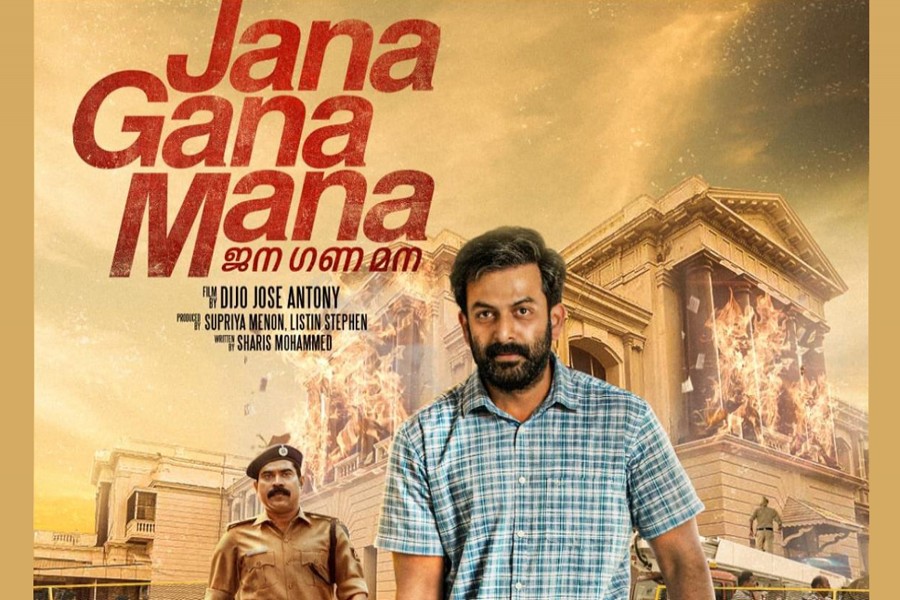“Justice is abstract, law is a fact.”
This is one of the most iconic dialogues from the 2019 movie, Section 375, and probably one of the most realistic, too. It is the responsibility of the court to deliver the abstract, which is justice, through the fact, which is law, as the court is the ultimate place for the application of the law.
But, problems occur when the public, media, social media takes the responsibility to deliver the abstract. And that is because they are not responsible for practising law. So, they practice emotion as their natural law, and thus, deliver their kind of justice.
Jana Gana Mana, a recently released movie, is based on this particular fact of mob and media trial.
Surely, Jana Gana Mana has got a twisted plot. The movie starts with the sudden discovery of the burnt corpse of a young university teacher named Saba Mariyam.
Postmortem says that she was probably raped and murdered. Somehow, the investigating officer for this killing, ACP Sajjan Kumar, succeeds in catching the four criminals, who seem to have quite a strong political support.
Later, all of the four are encountered, so they cannot have any type of political help. Though the media and mass congratulate the ACP for this, a human rights organisation files a case against Sajjan Kumar, and that is where the scenario starts changing.
Now, there are two particular points which are represented through the movie. The first point refers to the mass people’s perspective towards the law, to be more precise, a law which is applied by a flawed system, and how the hegemony of media affects them.
Well, this is an issue in most of countries today. Whatever the media says, be it printed or visual media, the audience seem to influenced without much interpretation.
Mohammad Saiful Islam, a graduate of Journalism from Dhaka University, described what he thinks in one of his social media posts regarding this movie.
“Just like Michel Foucault’s concept truth, which is multi-faceted and definitely not absolute, the media also categorises truth, modifies it, coats with exaggeration, or omits some parts.”
It can be seen in the movie, how people react to the news produced and provided by the media, and without being proven guilty in the court, declare the four suspects as guilty.
Especially in the second half of the movie, when a member of a women's right organisation is asked in the court why she took the four suspects guilty for granted, she replies that, because it was national headline. Even the victim’s mother also believes the same thing, just because the media highlighted it.
And the media? Well, they verdicted this killing to be an act of rape and murder, even before the postmortem report came. Ironically, on the very same day as Saba’s corpse was found, another woman's body was also found by the police. But, the media highlighted the first one because it has the elements to spark, leading to an increase of circulation. This shows how the media modifies the truth.
Secondly, another point of the movie unmasks the typical casteism in modern Indian society. Vidya, a brilliant student of Saba’s university, could not complete her PhD just because she was a Dalit.
She waited for seven years, and yet she was threatened and mistreated by her so-called upper caste supervisor which led her to commit suicide. This particular sub-plot strikes the audience with a thought that even the most unnecessary of things like caste can be a weapon of domination.
To conclude, somehow, Jana Gana Mana recreates happenings in our own surroundings. Except Prithwiraj’s over-heroic image, the movie tells the tale of harsh reality.
This thought-provoking movie is directed by Dijo Jose Antony, and acted by Prithwiraj Sukumaran, Mamta Mohandas, Suraj Venjaramoodu and many more. After ruling the theatre, Jana Gana Mana is currently streaming on Netflix.


